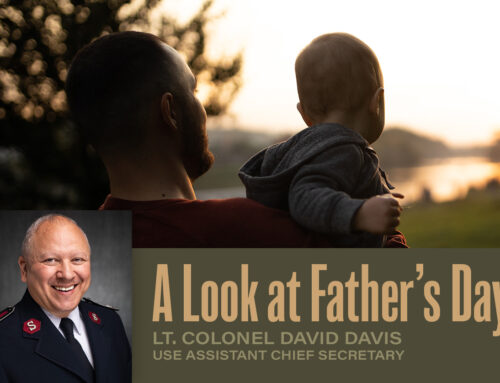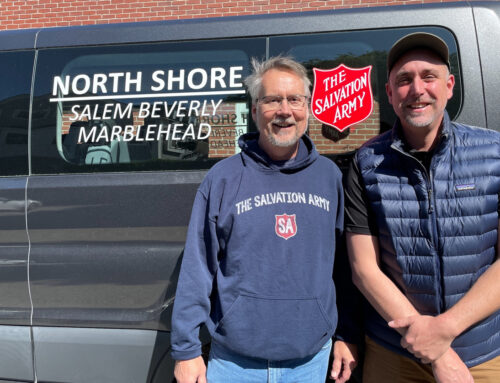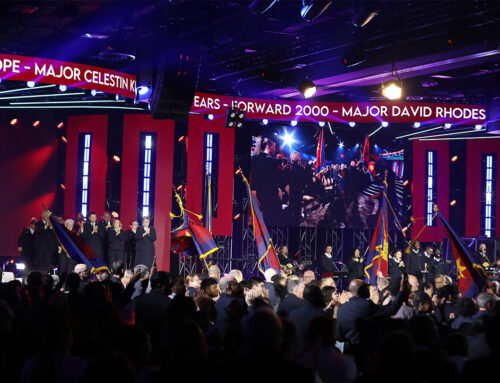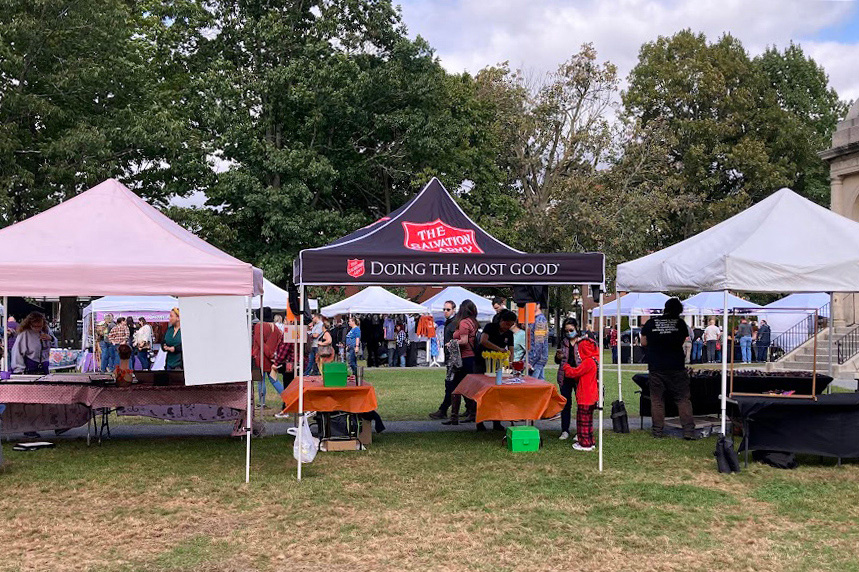
Pastors of Witch City
by Hugo Bravo
In the historic town of Salem, Mass., The Salvation Army shines God’s light on spiritual darkness as it does everywhere else—by meeting human need.
When Major Richard Sanchez got the news that he and his wife, Major Lolita Sanchez, would be the next officers to serve as pastors at The Salvation Army in North Shore, he couldn’t help but feel excited.
“I thought about how interesting it would be to serve in a town with so much history. I guess I’m not a typical pastor,” he says laughing.
The Sanchezes spoke to Salvation Army pastors who had served at the North Shore Corps, which was also known as the Salem Corps. Those pastors warned them that running a ministry in a place like Salem would be different than in other places.
“I know that there are officers, especially Hispanic ones like my wife and I, who would be a little confused or fearful if they saw what type of city Salem is,” says Major Richard. “Since childhood, we’re taught to stay away from any type of ‘brujeria’, or witchcraft.”
“We get asked all the time how we could survive here, or if we’re fighting everything around us. It’s funny when tourists are surprised at seeing The Salvation Army in Salem, yet they’re here too with their own families,” says Major Lolita. “I remember we met a pastor from out of state who had come to see Salem with his family. He returned to his car early, because he was shocked at how ‘dark’ he said the city was.” Though the Sanchezes are now serving The Salvation Army in New Jersey, they look back on their time in Salem with fondness, knowing that no matter how “dark” the city of Salem may be for others, the light of The Salvation Army North Shore Corps has continued to shine for over 100 years.

getty images
A bewitching history
Salem is known for its witch trials, a series of court hearings and prosecutions that took place between February 1692 and May 1693. They began when a group of teens claimed to be possessed by the devil accused several local women and men of practicing witchcraft. Fueled by fear, misguided religious practices, and political anger, the accusers triggered the arrests of over 200 people, 20 of whom were put to death. The trials ended when a new city government ordered the release of any remaining residents who had been accused.
Today, Salem is one of the more famous tourism spots in New England. Rather than shy away from its past, residents embrace it with witch museums, reenactments of the trials, and haunted walking tours. There are stores where visitors can buy merchandise from movies such as “The Crucible,” “Harry Potter,” and “Hocus Pocus,” the latter of which was filmed in Salem. Even the police department’s shield has the words “Witch City” over a shadow of a witch riding a broomstick.
Major Lolita admits that for the first three years of their appointment, she wanted nothing to do with the more infamous aspects of the city.
“Officer friends would tell us to never go out to eat in Salem or walk by any of those places,” says Major Lolita. “But the COVID–19 pandemic taught us that we needed more outreach, not less. We can’t just be huddled in here by ourselves.”
Ministry of presence
The month of October in Salem is when the city gets its highest number of tourists. On Saturdays in the month, the city holds an outdoor festival to promote all aspects of its history as well as local businesses and attractions. Last year, The North Shore Corps set up a table and tent at the festival for the first time. The pastors and volunteers gave away candy, talked about the services and history of The Salvation Army in Salem, and prayed with visitors from all over the world.
“It was a great experience. We need to have a presence in events like that, because any place is a place to show God’s love,” says Major Lolita.
Says Major Richard, “Salem wants to be a place that’s open to everyone, and we know there’s an audience that will be drawn to our type of ministry.”
Just as tourism has been profitable for Salem, the North Shore Corps has also found a way to use their presence to raise funds for the church. Being so close to museums and restaurants made it possible for the church to share its parking lot on busy days in October for a fee with tourists. “I think some of them thought that a Christian church in Salem would be a building that’s falling apart,” says Major Richard. “But when they walked in, they saw a chapel with beautiful stained–glass windows, a busy food program, and a spot for children’s archery lessons. Some even gave more than what the parking fee cost. They saw first–hand what was being done at Salem’s Salvation Army in the name of God.”
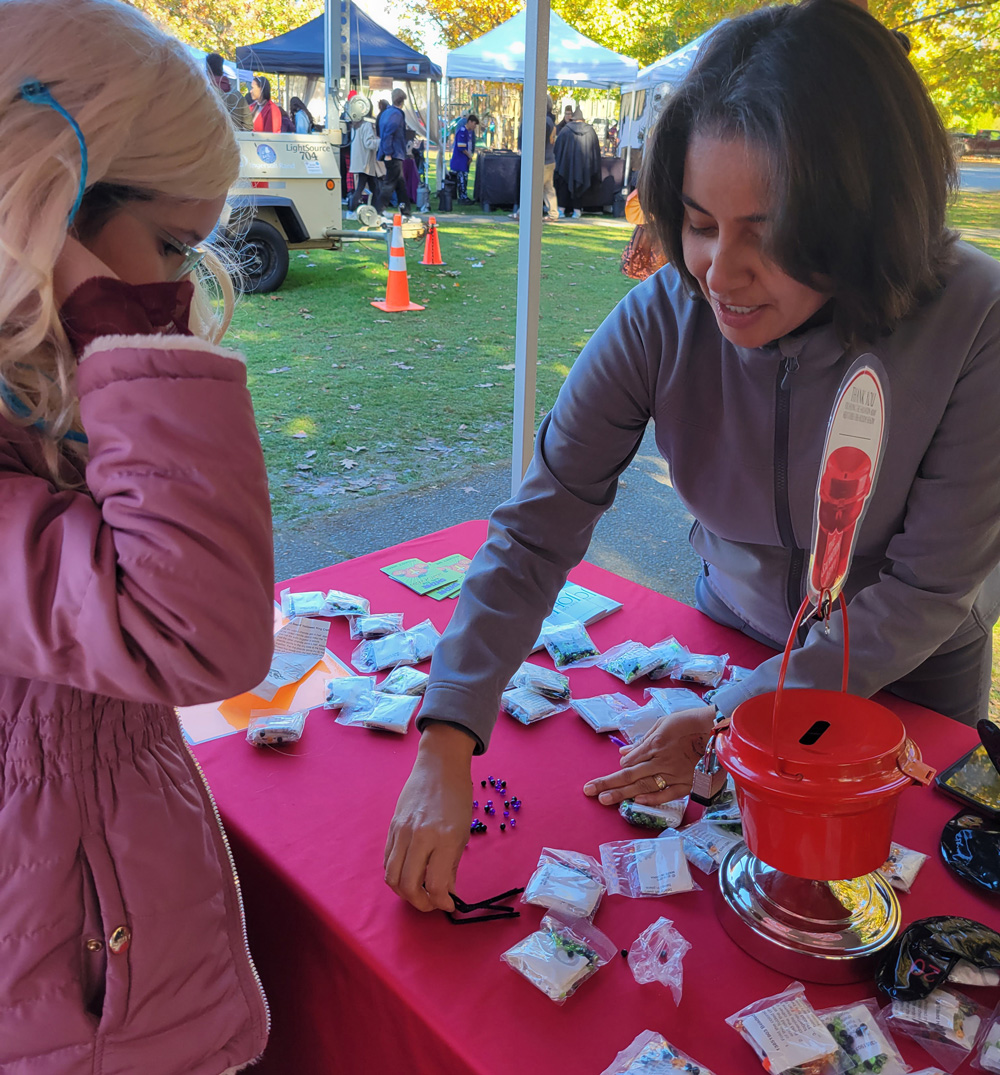
A hidden crisis
It’s easy to find a house said to be haunted by the dead in Salem. But it’s the houses with living, struggling families in them that the North Shore Salvation Army has made it its mission to help. As the price of homes and condos in the state go up, so do its poverty levels.
“It’s very expensive to live here,” says Major Richard. “Look past the tourism aspect of Salem, and you will see this is a town going through a major housing crisis. We help many families pay their rental and utility bills. We get numbers in the hundreds for our food programs.”
“People who are also struggling to get by say to us, ‘We see and appreciate what you’re doing here for others,’” says Major Richard.
“When we arrived in Salem, I was very surprised to see the number of social services in the North Shore area,” says Major Lolita. “There is a homeless shelter, multiple food pantries, a Boys & Girls Club, a YMCA, and Catholic charities. As pastors, we’ve served in other places where resources such as those weren’t as readily available.”
With the number of providers in the city, the pastors admit that it was hard at first to find a real niche of where they could help. But when COVID-19 closed all other service locations in 2020, the North Shore Corps members remained as busy as ever, driving to neighboring towns and cleaning out their local food pantries that had no place to distribute their goods.
“We had food racks in the parking lot so people could pick out what they needed, like in a shopping aisle,” says Major Richard. “Everything was open air, and our numbers tripled. People who were coming here once a month for help now were coming every week.”
The work continues
Beyond the spectacle of Salem’s history, the pastors acknowledge that the culture can harbor a certain darkness and negativity towards Christians. “You will find spiritual warfare in any location, but in Salem, it can be on display. It’s intertwined with its history,” says Major Richard.
“I can laugh at some of the more outrageous aspects of Salem, but it’s true that some people here are very open about their worship of the occult. We have members here in our corps who, at one point, were involved in cults that sought to bring harm towards people of faith.”
“However, I choose to remember that scripture says, ‘Greater is He in us than he in the world.’ God sent The Salvation Army and us to the North Shore, so why should we be afraid or intimidated when there is still work to do here?”
“We have a community that is receptive to our mission, but we can’t just sit and wait for them to come to us. We must go to them, with our tent, our shield, and our message,” says Major Lolita. “We can have a great relationship with the city, while still being true to who we are and reminding everyone that The Salvation Army in Salem is not going anywhere.”
Read more from the latest issue of saconnects.


